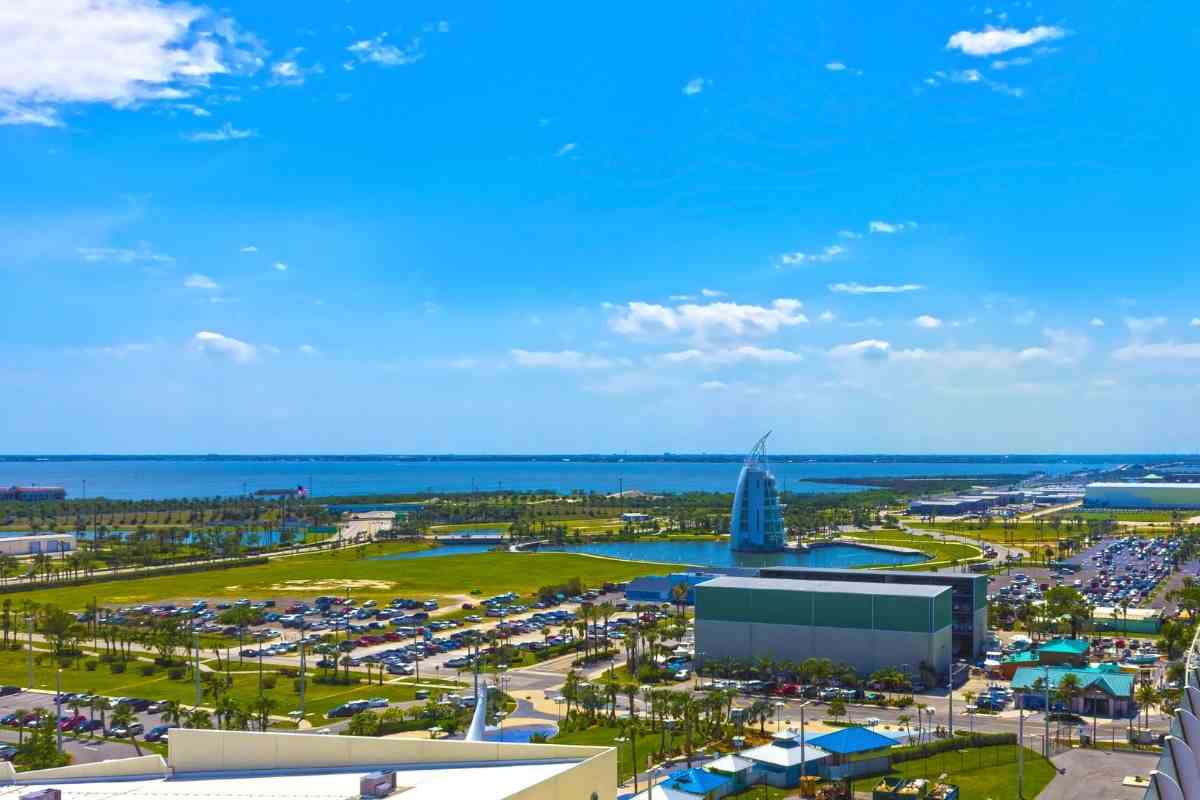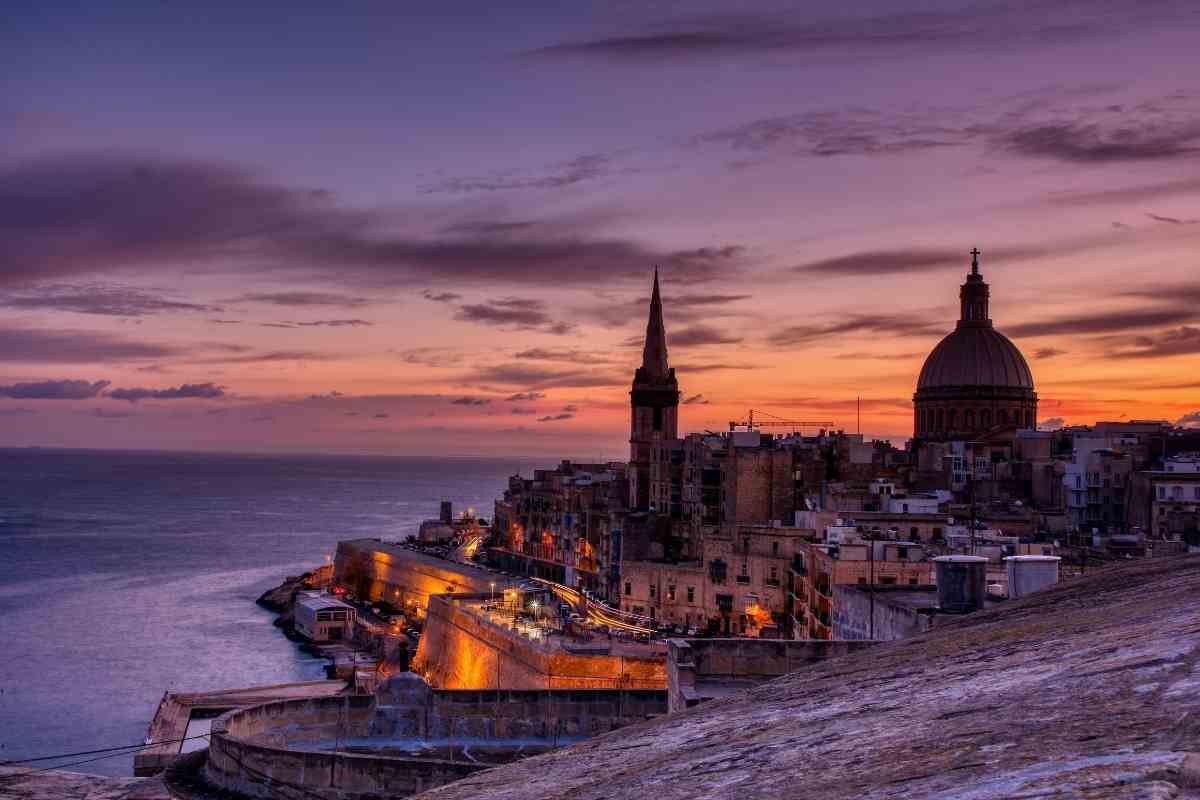California’s coastline offers a vast array of picturesque beaches, attracting tourists and locals alike to enjoy the surf and sand throughout the year. With the variety of activities and events taking place at these beaches, a common question is whether or not they close down at night.
While some beaches may have specific hours of operation, many California beaches do not fully close at night.
However, certain restrictions and regulations may apply to overnight activities, and access to parking lots or amenities might be limited after specific hours. It is always a good idea to check the rules and policies for the specific beach you plan to visit.
Key Takeaways
- Many California beaches do not completely close at night, but some may have restricted hours or limited access.
- Regulations and restrictions may be in place for overnight activities and access to certain amenities and parking lots.
- It is essential to familiarize yourself with the rules and policies of individual beaches before planning an overnight visit.
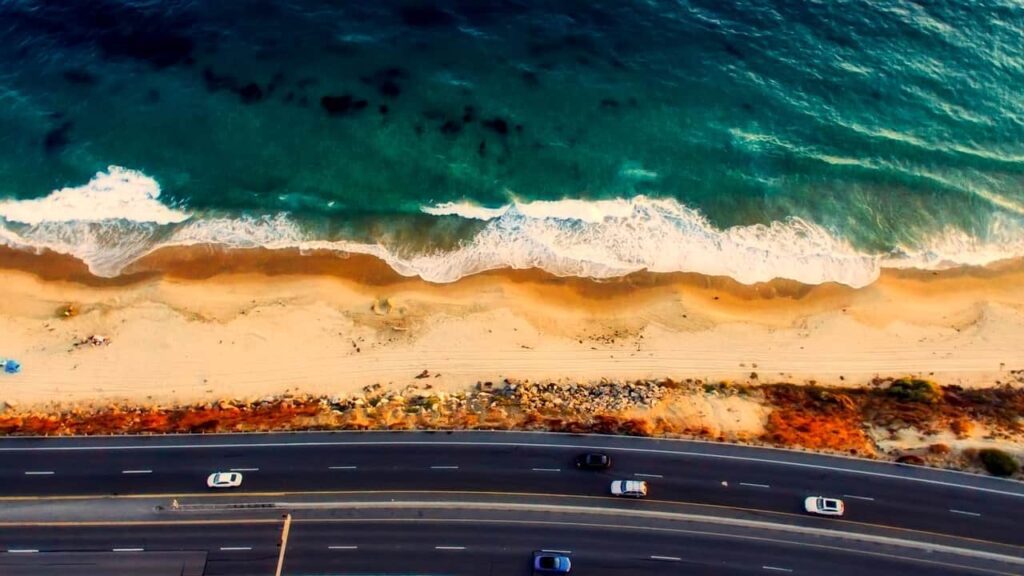
California Beaches: An Overview
California is home to a diverse range of public beaches along its stunning coastline. From the bustling atmosphere at Santa Monica Beach to the serene beauty of Ocean Beach, there’s a beach for everyone’s preferences.
When it comes to beach accessibility, most beaches have opening and closing times based on daylight hours. This applies to both state-run and local parks for safety reasons.
Visiting a classic Southern California beach like Coronado Beach provides not only picturesque views but also a 24-hour dog beach on its north end. Beachgoers can easily find metered and free parking spaces in the area.
Some beaches, however, may have rules and regulations governing their use. For instance, certain California beaches are open from 6 a.m. to 10 p.m., with no private vehicles allowed on the sand.
Overall, the Golden State’s beaches offer a variety of experiences along its extensive coastline, from surfing at iconic spots to just taking a leisurely stroll on the sand.
Rules and Restrictions
In California, most beaches have opening and closing times based on sunlight hours. Beach rules and restrictions are enforced to ensure safety and maintain a pleasant environment for all visitors.
At LA County beaches, some of the common restrictions include:
- No smoking
- No tents, overnight camping, or overnight sleeping
- No fires or barbeques
- No amplified music
In addition to these rules, other regulations for California state parks and beaches include no littering, no diving in shallow waters, and no nudity.
Beach closures may occur due to various reasons such as natural disasters, public health concerns, or wildlife protection. For instance, during the COVID-19 pandemic, restrictions were imposed at some California beaches, including limited access to facilities and group areas. Always check the status of each beach or park before visiting.
Some beaches may require permits for activities like weddings, film productions, or special events. Please check the rules of the specific beach you’re interested in to verify permit requirements.
Violating beach rules and restrictions may result in a citation or fine. To avoid penalties, make sure to familiarize yourself with the regulations and respect posted signs at your beach destination.
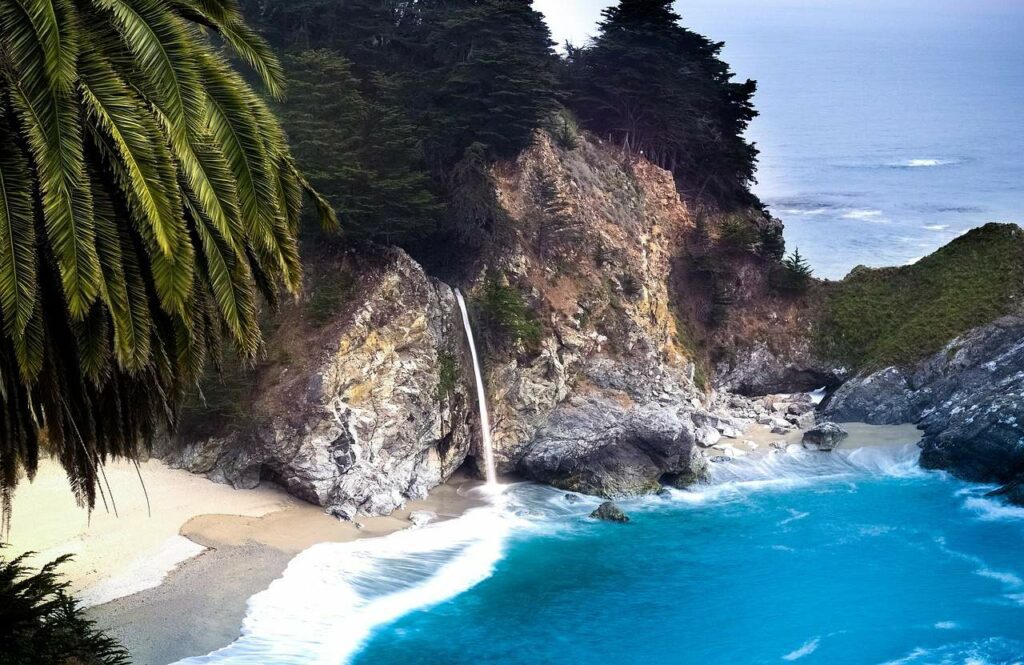
Activities and Event Management
California beaches offer a wide variety of recreational activities for both daytime and nighttime enjoyment. Popular options include surfing, swimming, and beach volleyball during the day, while beach bonfires and moonlit walks become more common after sunset.
Many events take place at the numerous beach locations, such as music festivals, art shows, and environmental awareness programs. These events can be both entertaining and informative, providing attendees with valuable experiences and memories.
When it comes to weddings, California beaches serve as stunning venues with their picturesque sunsets and breathtaking ocean views. Couples can celebrate their special day with a dreamy beachfront ceremony and enjoy the natural beauty of the seashore.
Beachside competitions are a thrilling and engaging way for enthusiasts to showcase their skills in sports like surfing, paddleboarding, and beach volleyball. These contests often attract crowds of spectators and foster a sense of community among participants.
All these activities and events contribute to the vibrant atmosphere of California’s beaches, making them an ideal destination for residents and visitors alike. With proper planning and event management, these beachside festivities can be both safe and enjoyable for everyone.
Amenities and Services
Parking is often available near popular beach locations, with some offering metered spaces and others providing free parking along nearby streets. For added convenience, consider using an app for local parking information.
Many California beaches also feature piers and boardwalks, adding to the overall atmosphere. These structures provide scenic views, dining options, and activity spaces, enhancing your beach experience.
Don’t forget about picnic tables and fire pits, which you can find at select locations. Take advantage of these amenities to enjoy outdoor dining and relaxation with your friends and family.
Keep in mind, however, that some beaches may have restrictions on fires, amplification of music, overnight camping, and other activities. It is important to check local rules before engaging in these activities.
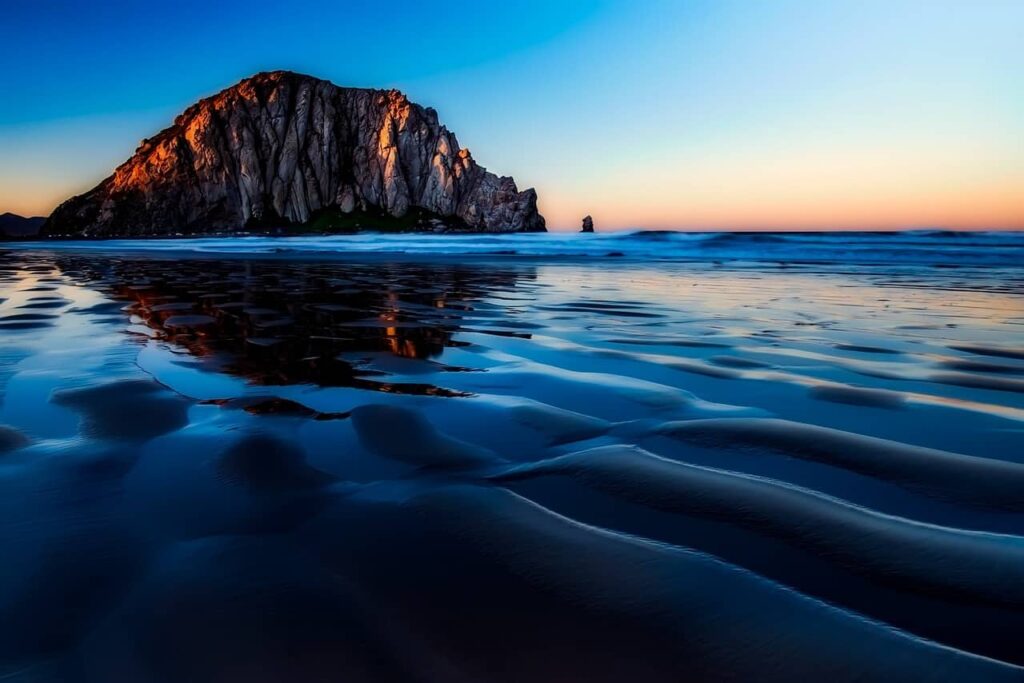
Safety and Precautions
California beaches often have opening and closing times which are loosely based on sunlight hours for safety reasons. Most beaches remain accessible between 6 a.m. and 10 p.m.
Sunset provides limited visibility, and therefore, swimming after dark can be dangerous. It is crucial to maintain safety measures on the beach, including observing lifeguard presence.
Most beaches in California emphasize ocean safety as not all of them are recommended for swimming or wading. Be cautious of rip currents and rocky areas that can pose hazards to swimmers.
To ensure a safe beach experience, always swim near a lifeguard when possible. Lifeguards are trained to spot potential dangers and can assist in emergency situations.
Pay attention to posted warning signs and follow the beach rules. Refrain from bringing glass containers to the beach as they can pose a risk of injury to beachgoers.
To maintain safety at California beaches, adhere to the beach operating hours, prioritize swimming in designated areas, and follow the guidelines set by lifeguards.
Night Life at California Beaches
California is known for its beautiful beaches and vibrant night life. The sun sets, and the beaches come alive under the moonlight.
Many beaches in California do not have specific closing hours, allowing visitors to enjoy the beach at night. However, some beaches may have parking restrictions or limited facilities after certain hours.
Redondo Beach is one example of a beach that is open 24 hours. It features multi-level parking and a boardwalk for late-night strolls along the ocean.
Long Beach and Newport Beach are also popular for their bustling night scenes. Visitors can find various nightlife activities, such as bars and clubs, cocktail tours, and more.
While enjoying the beach at night, be mindful of local regulations and safety guidelines. Always respect the environment and surrounding communities.
Regulations on Overnight Stays and Activities
Beaches in California have various regulations in place to maintain order and safety. Overnight stays and activities are subject to restrictions depending on the specific beach.
Overnight camping is not allowed on most LA County beaches, including tents and sleeping overnight1. California State Parks also have rules against overnight stays, which can be found on their website2.
Fires and barbeques are similarly prohibited on many LA County beaches1. At California State Parks, though, fire rules may vary, and it is advisable to check their regulations2.
Sleeping on the beach at night is generally illegal3. It is essential to follow these rules to avoid fines or legal consequences.
Specific regulations may change due to circumstances, such as COVID-19. It is crucial to keep up to date with local restrictions by visiting California State Parks’ website4.
Beach Behavior and Etiquette
Noise: Keep noise levels in check so as not to disturb other beachgoers.
Animals: Dogs are allowed in specific areas like Dog Beach in Ocean Beach, but not on all California beaches.
Smoking: Avoid smoking on the beach; many have restrictions in place.
Littering: Dispose of your trash responsibly to maintain cleanliness.
Crowds: Be mindful of personal space when selecting your spot on the beach.
Walking: Walk on designated paths to minimize disturbance to vegetation.
Exercise: Engage in sports and workouts outside crowded areas.
Common sense: Adhere to beach rules and always prioritize safety.
Loitering: LA County beaches prohibit loitering between midnight and 6am.
Specific California Beaches and Their Policies
Santa Monica is known for its beautiful beaches and the iconic Santa Monica Pier. Beaches in this area typically close at night to promote safety and reduce potential crime.
Malibu beaches are also popular California hotspots. These beaches often feature restrictive rules to maintain cleanliness and prevent illegal activities.
Redondo Beach is another famous Southern California beach. Similar to others in the region, it usually closes during nighttime hours to ensure the safety of its visitors.
Visting harbors near the Golden Gate Bridge in San Francisco can be a breathtaking experience. However, beach access is typically restricted during the night for safety reasons and to limit overnight activity.
San Francisco beaches offer visitors a unique, scenic experience. Nighttime access in these areas is generally limited to prevent potential hazards and maintain a secure environment.
LA County beaches enforce specific rules regarding nighttime loitering, amplified music, and other activities, aiming to provide a safe and enjoyable environment for all visitors.
Los Angeles offers a variety of beach options for tourists and local residents alike. Many public beaches have nighttime closures to mitigate crime and maintain a secure atmosphere.
Barbecue and Alcohol Regulations
California beaches have specific rules and regulations regarding alcohol and barbecues. To ensure a safe and enjoyable experience, it is essential to familiarize yourself with these guidelines.
Alcohol consumption is typically not allowed on public beaches in California. However, there are a few exceptions where alcohol consumption is permitted, such as at certain private beaches.
Barbecues are generally permitted at designated areas on California beaches. It is crucial to consult with the local beach authority for specific rules on using barbecues.
Please note that fire rings are provided at some beaches for bonfires. It’s important to follow the respective beach guidelines while using them.
Fireworks of any kind are strictly prohibited at California beaches, ensuring the safety and wellbeing of all beachgoers.
When visiting California beaches, remember to adhere to these regulations regarding alcohol, barbecues, fireworks, and fire rings to have a safe and enjoyable time.
Water Sports Regulations
California has specific regulations for ocean beaches and ocean water-contact sports areas. These rules are set to ensure public safety and environmental protection.
Surfing is a popular water sport in California. Restrictions may apply depending on beach regulations and local ordinances.
Diving requires paying attention to beach rules, such as no diving in shallow water and respecting no-take zones for marine life as indicated in California Freshwater Sport Fishing Regulations.
Boating activities must adhere to state regulations, and watercraft operators must follow the boating safety guidelines. Local ordinances may also regulate boating zones, speed limits, and launching areas.
Please note that LA County enforces strict beach rules, such as no loitering between midnight and 6 am, no amplified music, and no diving in shallow waters. It is essential to familiarize oneself with local regulations at each beach before engaging in water sports.
Parking and Transportation
Most beaches in California have specific opening and closing times, which makes it essential to consider parking and transportation options. It is crucial to plan your visit accordingly for a smooth and enjoyable experience.
Metered Parking: Beaches like Central Beach offer metered parking spaces for visitors. These parking spaces work on a first-come, first-served basis, ensuring convenience and easy management.
Free Parking: Along streets like Ocean Boulevard, you may find free parking spaces without any time restrictions. However, they may be limited and fill up quickly during peak hours.
Overnight Parking: For those looking to stay overnight in a recreational vehicle (RV), advance approval is needed in some locations, such as Marina del Rey Launch Ramp (Lot 2). Contact the appropriate authorities and provide your contact information.
Bus Access: Buses are a convenient and cost-effective transportation option to reach various beaches. Research your preferred beach’s bus routes and schedules to avoid any delays and ensure a seamless trip.
Frequently Asked Questions
Why do beaches close at night?
Beaches often close at night primarily for safety reasons, as it is not feasible to have lifeguards or beach security on-site 24/7, 365 days per year1. Additionally, limited visibility at night can increase the risk of accidents and other hazards.
Swimmable beaches in California
California boasts a wide variety of swimmable beaches with beautiful scenery and excellent facilities. Some of the most popular include Newport Beach, Huntington Beach, and Coronado Beach, offering visitors a great coastal experience and enjoyable swimming.
Beaches that are open at night near me
There isn’t a comprehensive list of all beaches open at night, but it’s essential to check with local authorities or the specific beach’s official website for the most accurate information regarding their operating hours and any nighttime restrictions in place.
Is Santa Monica beach open 24 hours?
No, Santa Monica Beach is not open 24 hours a day. It typically closes at night, with specific hours varying depending on the season and local regulations. Please consult the official website for up-to-date information on the beach’s operation hours.
Can you sleep on the beach in Los Angeles?
Sleeping on the beach in Los Angeles is generally prohibited, with most beaches closing after dusk or at nighttime. It is essential to adhere to local guidelines and avoid camping or sleeping on the beach to respect the area’s safety regulations.
Best beach to go to at night in Los Angeles
While visiting beaches at night can be limited due to closures, one popular spot in Los Angeles is Dockweiler State Beach, which allows nighttime access and features fire pits for bonfires. Ensure you respect the area’s guidelines and practice proper beach etiquette during your nighttime visit.

